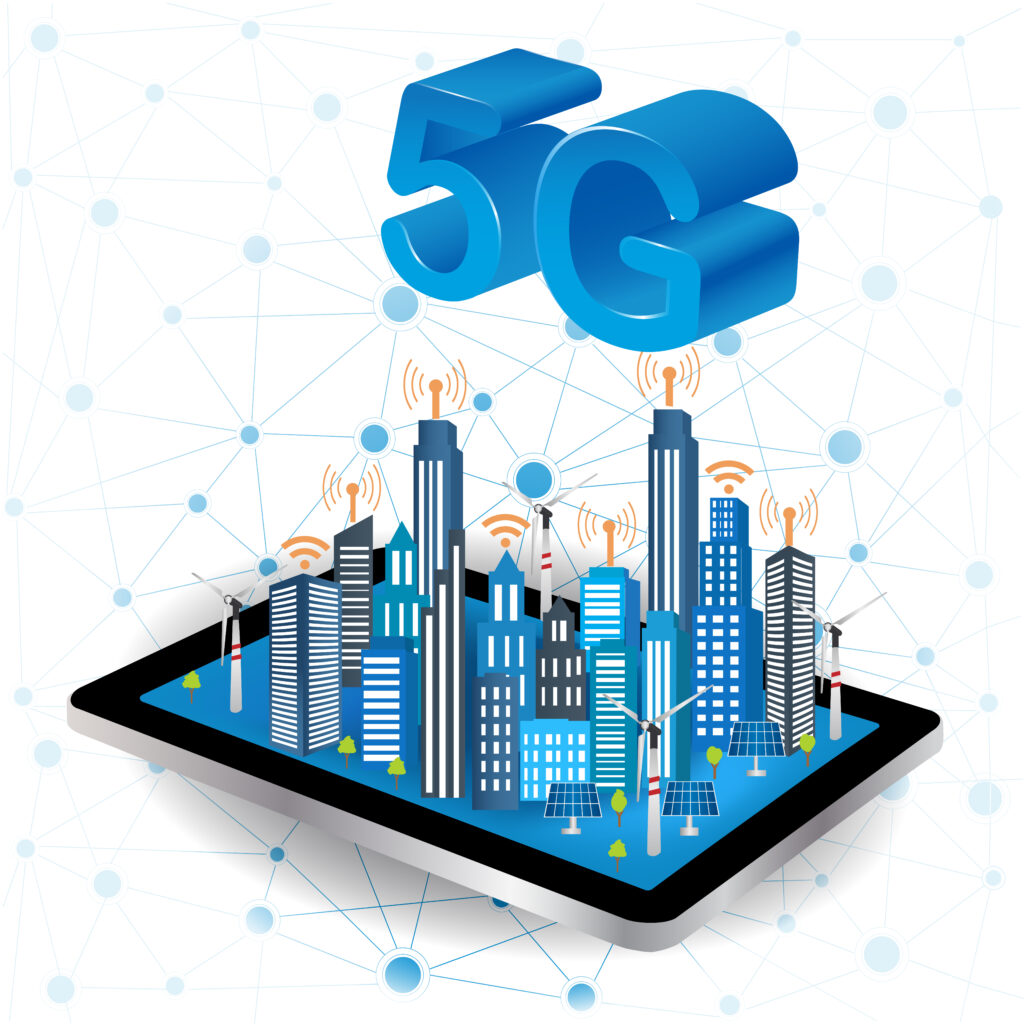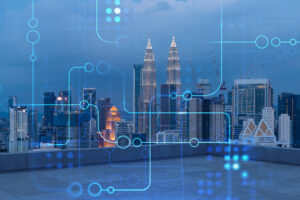The Internet of Things (IoT) has ignited across the region, bringing with it the promise of enhanced efficiency, connectivity, and innovation. From smart cities to telehealth, IoT is driving transformations in how urban centers are managed and healthcare is delivered. The applications span wide, touching everything from manufacturing to agriculture. New solutions enabled by IoT have the potential to solve long-standing challenges and propel industries forward. For Southeast Asia, IoT represents a bold step into an interconnected future brimming with possibilities.
The Rise of IoT in Southeast Asia
Rapid Adoption Across Industries
The Internet of Things (IoT) is rapidly gaining traction in Southeast Asia, with widespread adoption across various sectors. Smart city initiatives are leveraging IoT for efficient traffic management, waste disposal, and utility monitoring. Healthcare providers utilize connected devices for remote patient monitoring and telemedicine services. Agriculture benefits from IoT-enabled precision farming techniques, optimizing crop yields and resource utilization.
Driving Efficiency and Innovation
IoT innovations are driving significant efficiency gains and transformative changes in the region. Manufacturers employ IoT sensors for predictive maintenance, minimizing downtime, and maximizing productivity. Logistics firms leverage IoT tracking for real-time visibility into supply chains. Retailers harness IoT data for personalized marketing and inventory optimization.
Overcoming Challenges
However, the rise of IoT in Southeast Asia is not without its challenges. Concerns over data privacy and cybersecurity must be addressed. Lack of standardization and interoperability between IoT devices and platforms presents hurdles. Inadequate infrastructure and limited technical expertise can hinder widespread adoption, especially in rural areas.
Collaborative Efforts for Growth
To overcome these obstacles, collaborative efforts between governments, businesses, and academic institutions are crucial. Investing in IoT education and skill development programs is essential. Establishing regulatory frameworks and industry standards can foster trust and accelerate IoT adoption. Public-private partnerships can drive innovation while ensuring data protection and cybersecurity measures are in place.
By addressing these challenges, Southeast Asia can unlock the full potential of IoT, driving economic growth, improving quality of life, and establishing itself as a global hub for IoT innovation.
Smart Cities Lead the Way in IoT Adoption

As urban centers across Southeast Asia experience rapid growth and development, smart city initiatives are emerging as a driving force behind IoT adoption in the region. These cutting-edge projects leverage interconnected devices and data analytics to optimize city operations, enhance public services, and improve sustainability.
Efficient Resource Management
Smart cities harness IoT technologies to monitor and manage critical resources like water, energy, and waste more effectively. Sensor networks track usage patterns, identify leaks, and enable predictive maintenance, resulting in significant cost savings and reduced environmental impact.
Intelligent Transportation Systems
By integrating IoT sensors, cameras, and communication networks, smart cities can orchestrate traffic flows, adjust signal timings, and provide real-time updates on congestion and parking availability. These intelligent transportation systems not only alleviate traffic woes but also contribute to lower emissions and improved air quality.
Enhanced Public Safety
IoT-enabled smart cities leverage video surveillance, gunshot detection, and emergency response systems to bolster public safety measures. Real-time data analysis aids in rapid incident response, predictive policing, and proactive measures to mitigate risks and enhance citizen security.
Citizen Engagement and Quality of Life
Through user-friendly mobile applications and interactive platforms, smart cities foster seamless communication between residents and municipal authorities. Citizens can report issues, access city services, and participate in decision-making processes, fostering a sense of community and improving overall quality of life.
As Southeast Asian nations embrace the transformative potential of IoT in urban environments, smart cities are poised to drive sustainable growth, economic opportunities, and a better standard of living for their residents.
Innovations in Healthcare Powered by IoT
Connected Devices Revolutionizing Care
The Internet of Things (IoT) is transforming healthcare delivery by enabling seamless connectivity between devices, patients, and providers. Connected medical devices like wearables and implants constantly monitor vital signs, streamlining remote patient monitoring. Real-time data allows physicians to make informed decisions, improving outcomes.
Smarter Hospital Operations
IoT sensors optimize hospital workflows by tracking assets, personnel, and patient flow. Smart facilities leverage automation for energy efficiency, regulating lighting, temperature, and ventilation based on occupancy. IoT-enabled inventory management prevents stockouts of critical supplies. These smart systems drive significant cost savings.
Empowering Preventive Healthcare
Beyond treatment, IoT enables a proactive approach to health management. Smart home devices detect potential issues early by monitoring air quality, diet, and activity levels. Mobile apps provide personalized coaching, medication reminders, and virtual consultations – keeping individuals engaged in their well-being.
Enhancing Emergency Response
In critical situations, IoT accelerates response times by rapidly triaging patients and dispatching resources. Ambulances transmit real-time patient data to hospitals, ensuring preparedness. Smart transportation systems optimize routes for swift arrivals. IoT streamlines coordination for effective crisis management.
Secure, Ethical Implementation
While IoT unlocks immense potential, stakeholders must prioritize data privacy, security, and ethical AI governance. Robust cybersecurity measures and regulatory compliance are crucial to safeguard sensitive health information. Transparent AI systems aligned with human values will foster trust in these transformative technologies.
With responsible implementation, IoT innovations can elevate healthcare accessibility, affordability, and quality across Southeast Asia. This powerful convergence of digital and medical domains promises a healthier future for all.
IoT Transforms Agriculture and Food Supply Chains
Precision Farming
The Internet of Things (IoT) is revolutionizing agriculture through precision farming. Smart sensors monitor soil conditions, crop health, and environmental factors in real-time. This data empowers you to make informed decisions – optimizing irrigation, fertilizer application, and pest management for maximum yield and sustainability.
Connected Supply Chains
IoT tracking devices provide unprecedented visibility into food supply chains. You gain granular insights into product location, condition monitoring, and cold chain integrity. This transparency enhances food safety, reduces wastage, and streamlines logistics for perishable goods.
Automated Operations
IoT-enabled farm machinery and drones automate labor-intensive tasks with pinpoint accuracy. From automated harvesting to targeted pesticide spraying, you boost efficiency while minimizing resource consumption and environmental impact. Robotics and AI further augment human capabilities on smart farms.
Data-Driven Insights
IoT generates a wealth of agricultural data ripe for analysis. Leverage AI and machine learning models to uncover patterns, predict outcomes, and derive actionable insights. You gain a decisive competitive edge through data-driven decision-making tailored to your unique operations.
Boosting Productivity
By integrating IoT across the agriculture value chain, you unlock significant productivity gains. Precise input management optimizes resource utilization. Predictive maintenance minimizes equipment downtime. Real-time monitoring empowers proactive interventions. IoT is an essential catalyst driving the next green revolution.
The Future of IoT in Southeast Asia: New Frontiers
As the digital landscape evolves, Southeast Asia is poised to embrace the Internet of Things (IoT) revolution. This region’s rapidly growing economies and tech-savvy populations make it fertile ground for IoT innovations.
Driving Smart Cities
One of the most promising frontiers is the development of smart cities across the region. IoT sensors and networks enable efficient management of urban infrastructure, transportation, utilities, and public services. Cities like Singapore are already leveraging IoT to optimize traffic flow, monitor air quality, and enhance public safety.
Revolutionizing Healthcare
The healthcare sector is another area where IoT is making significant strides. Remote patient monitoring, telemedicine, and wearable devices are improving access to quality care, especially in underserved areas. IoT-enabled medical devices can transmit real-time data, allowing for early detection and intervention.
Boosting Agricultural Productivity
In the agricultural sector, IoT solutions are helping farmers maximize yields and optimize resource usage. Precision farming techniques, enabled by IoT sensors and data analytics, allow for targeted application of water, fertilizers, and pesticides. This not only boosts productivity but also promotes sustainable practices.
Emerging Opportunities
As IoT technology continues to evolve, new frontiers are emerging. Autonomous vehicles, smart home automation, and industrial IoT are just a few areas where Southeast Asia can capitalize on the potential of connected devices. With the region’s growing tech talent pool and supportive government policies, the future of IoT looks promising.
To fully realize the benefits of IoT, however, challenges such as data security, interoperability, and infrastructure development must be addressed. Nonetheless, the future of IoT in Southeast Asia holds immense potential for innovation, economic growth, and improved quality of life.
In Summary
As we have seen, the Internet of Things is opening up exciting new possibilities across Southeast Asia. From revolutionizing city infrastructure to bringing quality healthcare to remote regions, IoT innovations are poised to solve entrenched challenges and create new opportunities. There is still much work to be done to fully realize the potential of IoT in this diverse and dynamic region. Yet the future looks bright. By embracing IoT and focusing on human-centered design, Southeast Asian nations can build smarter, more inclusive, and more sustainable societies. The IoT journey has only just begun.
More Stories
Proofpoint Acquires Hornetsecurity to Strengthen Microsoft 365 Security for SMBs
Proofpoint has announced the acquisition of Hornetsecurity to strengthen cybersecurity for small and medium-sized businesses (SMBs). Hornetsecurity is a leading European provider of AI-driven Microsoft 365 security solutions.
U Mobile Charts Independent Course with Ambitious 5G Network Rollout
Now, U Mobile, a key player in Malaysia’s telecom sector, is making a strategic move. It is withdrawing from investing in the government-backed Digital Nasional Berhad (DNB).
Vodafone Idea Ignites 5G Ambitions with Delhi Launch and Nationwide Rollout Strategy
Vodafone Idea (Vi) has boldly launched its 5G services in the bustling Delhi NCR region, redefining India’s telecom landscape.
Google’s Find Hub Gains Precision with UWB Support
Google has revamped its Find My Device network into the newly christened “Find Hub,” now boasting Ultra Wideband (UWB) support. Scheduled for release in May 2025, this update promises to revolutionize the precision of tracking lost items, allowing you to pinpoint both the distance and direction of your belongings with unprecedented accuracy.
SAP’s Cloud Crusade: Leadership Anchored as ERP Transformation Accelerates
SAP has extended CEO Christian Klein’s contract until April 2030 and CFO Dominik Asam’s until March 2028. This decision highlights the company’s commitment to cloud transformation.
Fintech Alliance PH Welcomes Paynamics to Strengthen Digital Payments Ecosystem
In the Philippines' financial technology sector, Fintech Alliance PH announces a pivotal collaboration with Paynamics Technologies Inc. This partnership signals...


